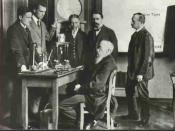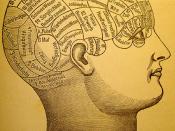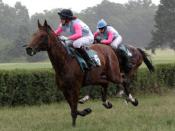The ultimate quest for sport psychologists is to establish what psychological factors produce the winning formula or to try to establish a profile of the successful athlete. Within the psychological framework attempts, to determine the "ideal athletic personality" have only been marginally successful (Morgan 1980, in White, 1993). One of the categories observed in order to understand and move towards the 'ideal athletic personality' is that of Psychological Skills Training (PST), "It is contended that mental skills training is a significant part of sport psychology and is of particular importance to athletes and coaches" (Rushall, 1995, p0.3).
Programs have been developed to help athletes develop their psychological skills. Many researchers within this field have concluded that Psychological Skills Training programs were effective in improving athletic performance. These PST programs combine various skills (e.g. imagery, relaxation, goal setting) with physical training in order to improve athletic performance. Researchers have evaluated PST programs to assess their effectiveness in relation to the performance enhancement process.
These research studies (Daw & Burton, 1994; Kendall, Hrycaiko, Martin & Kendall, 1990; Lerner, Ostrow, Yura & Estrel, 1996) concluded that sport performance significantly improved as a consequence of PST.
This essay will examine Thomas's (1990) model for performance enhancement with the contention that performance enhancement processes are different for different sports and between elite and non-elite athletes. This view argues consultants must take into account these considerations when implementing a program. Thomas's (1990) seven-phase, closed loop model "reflects the general approach emphasised by most of those writing in sport psychology" (Hardy, Jones, Gould, 2000) and therefore provides a good framework for the analysis of this statement.
Phase one of the model 'Orientation', focuses on the purpose, objectives and level of commitment of the athlete. An example would be whether the athlete desires help and to...


